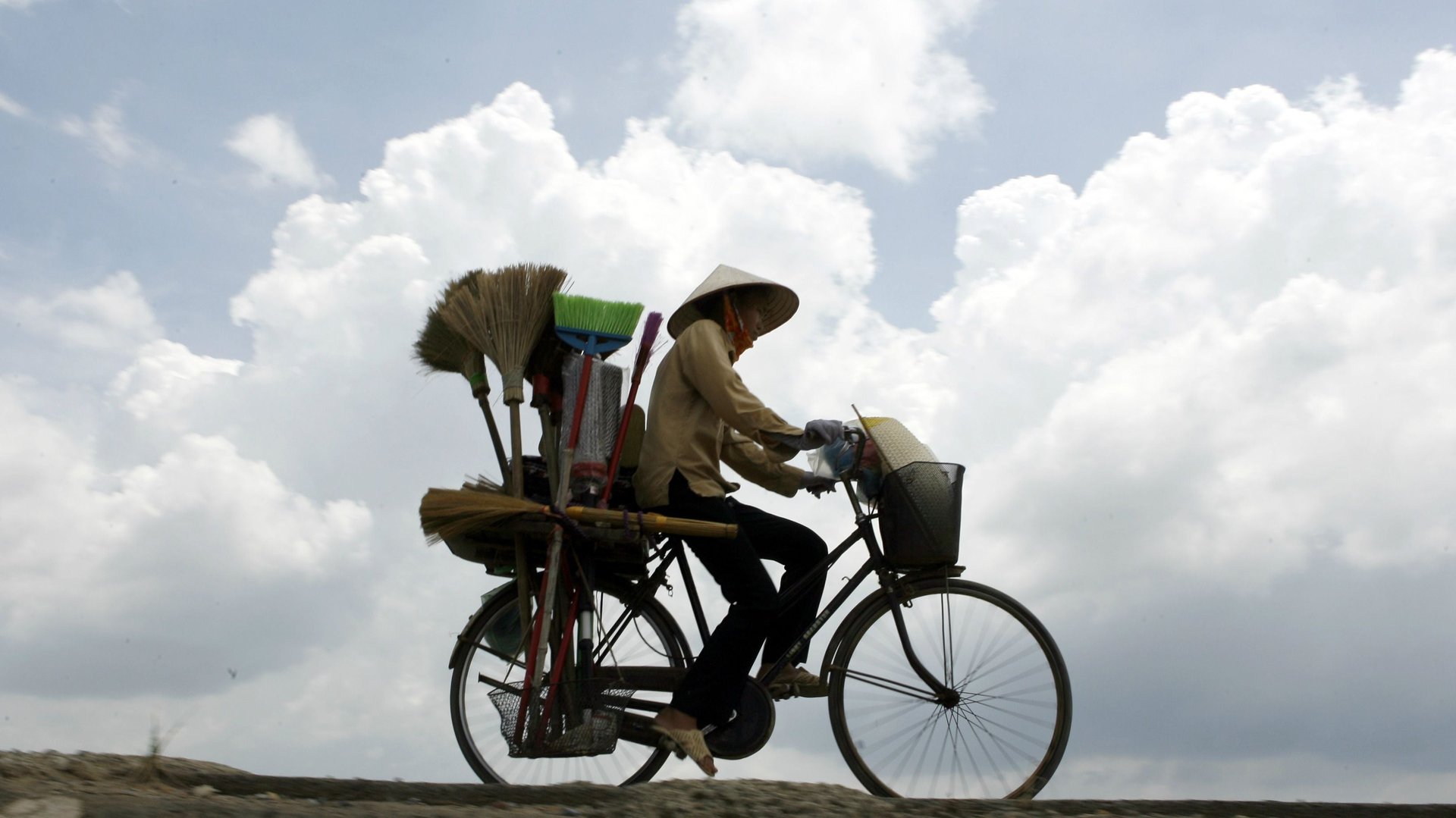Communist Vietnam just adores global capitalism—and it’s easy to see why
Global capitalism isn’t always easy to love. But Vietnam is still in the free-market honeymoon phase.


Global capitalism isn’t always easy to love. But Vietnam is still in the free-market honeymoon phase.
Roughly 95% of Vietnamese respondents to the Pew Research Center’s spring survey of global attitudes agreed with the following statement: “Most people are better off in a free market economy, even though some people are rich and some are poor.” That was the highest rate of agreement among all the countries where researchers asked the question.

Of course, capitalism is always easier to love during an economic expansion. And Vietnam has had itself quite a boomlet in recent years. The country is steadily making its way up the manufacturing food chain, depending less on churning out low-skill manufactured goods like textiles and shoes to produce more sophisticated products such as smartphones. And foreign capital has poured in, thanks to global companies’ eagerness to tap pools of labor that remain relatively cheap in comparison to fast rising Chinese wages. That all means that standards of living are going up. The IMF expects the economy to expand by 5.6% this year.
But there are darker clouds on the horizon. A worrying rise in consumer debt levels suggests that banks, regulators, and consumers might be a bit too enthusiastic about the prospects for the near-term future under Vietnam’s authoritarian version of the free market. After all, in a truly free market the busts invariably come after the booms.